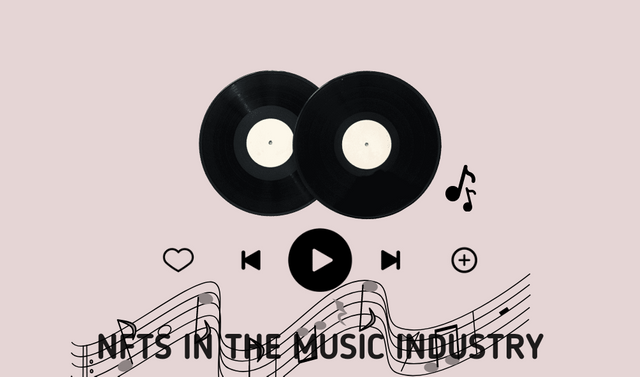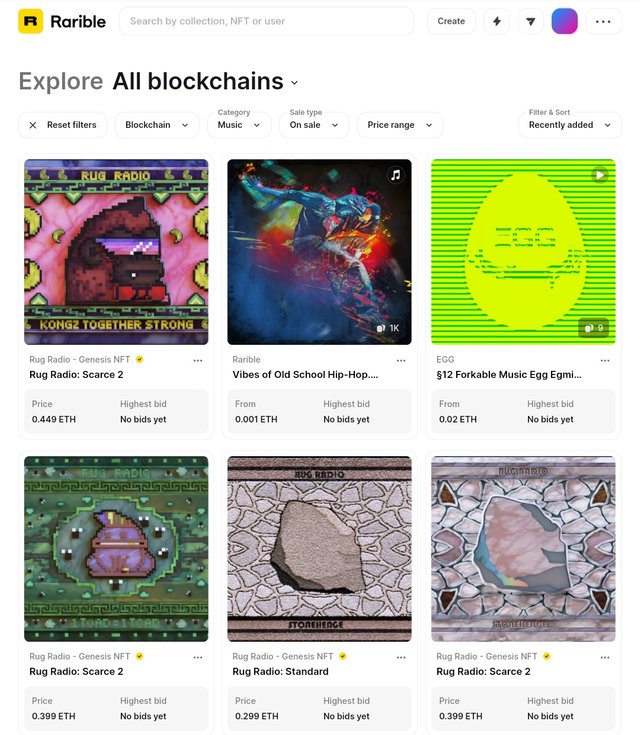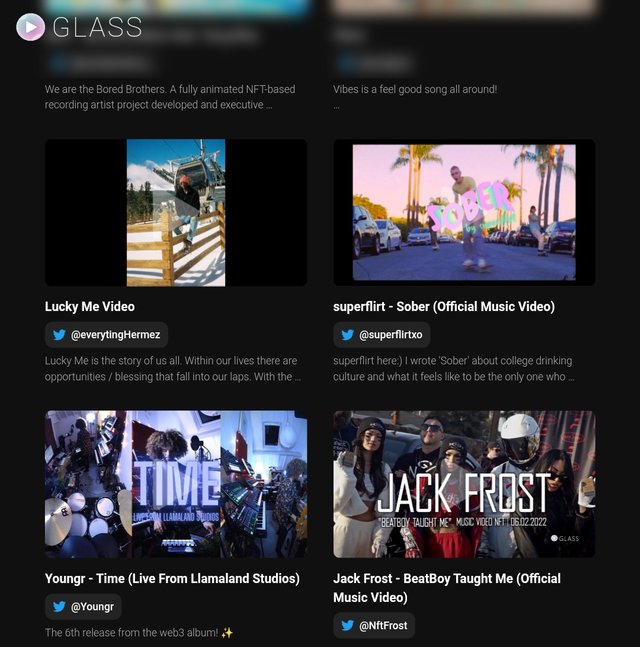Learn About NFTs - Non-fungible Tokens In The Music Industry
Introduction
This is the second edition of my NFTs series in the Tron fan club. The first post went into great detail about NFTs floor pricing, while the second provided a broad overview of NFTs and what makes them unique and non-interchangeable. Take a look at both of these if you want to understand more about NFT technology and the floor price in nfts.

NFT technology has the potential to completely transform a variety of industries, including music, marketing, and much more. With that out of the way, let's have a look at the amazing world of music NFTs.
Music Non-fungible Tokens
Did you know that musicians can sell their songs and even music videos as Non-fungible tokens (NFTs)?
On the basis, you may be wondering, "Why would I buy the NFT of a song when I can just stream or download it on Apple Music or Audiomack?" or "Why wouldn't I just go to Youtube or Tubidy and view or download the song video?" Both are reasonable questions to ask in light of what we're seeing. There are numerous reasons why the NFT concept may be more beneficial to musicians.
Consider the following scenario: You're an upcoming musician with no money, no record label, and no promoter. If you want your music to be noticed, you just have a few options, and the most of them will not bring you any money. You can try to get your song on Audiomack (but you'll need to find a promoter, which costs money) and get paid a penny per stream, or you can upload it on Apple Music, but you'll need a large number of streamers, and streaming costs a certain amount of money either with an iTunes card or an Apple music subscription.
Get started with music NFTs
It's up to you, as an upcoming musician, to find listeners, whether through live performances or by cultivating a social media fanbase. Assume you have a sizable fanbase and you provide your fans with the option of purchasing your songs as NFTs straight from you. You can utilize blockchain-based NFT technology to mint limited quantities of songs, music videos, or even entire albums as NFTs and sell them directly to fans. On the blockchain, everything is 100% transparent. This not only allows you to make a lot more money because no one takes a cut, but it also allows you to interact with your fans in a way that hasn't been done before.
It also allows you, the musician, to choose how you wish to interact with your fans. Do you want to make a meaningful difference by giving a portion of your profits to NFT holders? That's something you can do. Do you want to give away free concert tickets to those who purchased your NFT album? That's something you can do. Do you want to give away free goods or discount coupons to music NFT holders? That's something you can do. Imagine being a fan and receiving a free concert ticket by airdrop for holding the music NFTs of your favorite artist.

Take, for example, Rarible Nft Marketplace, which is built on both the Ethereum and Polygon networks. Musicians may easily mint their song or video as NFTs on the platform, which also allows upcoming musicians to sell their tracks as NFTs straight to consumers. Handling music as beautiful art is something I truly believe in, and I feel it has the potential to transform the music industry as a whole.
But wait, I'm not a musician; why should I be concerned about what this could mean for the musician?
That is an excellent question. Many of the people reading this aren't musicians. However, I'm prepared to guess that at least 90% of those reading this do listen to music. Let's take a look at it from that perspective.
As I previously stated, as a fan, you have the choice to simply stream the song on Apple Music or Audiomack (or any other platform) whenever you want. You don't have any rights to the song and don't own it. You only need to be able to listen to it. Imagine being able to buy a music video NFT from from your favorite artist, giving you actual ownership of a limited piece of digital content. Glass.xyz a video Nft marketplace offers this service, you can easily buy a single or album from your favorite musician and just receive something in return from the musician for being a fan in the form of more NFTs airdropped to your wallet.

On Glass.xyz if you own a copy of your favorite artist's music video, you could be eligible for a revenue share or whatever else the artist decides. You also check your wallet to see whether you've received a VIP ticket for a concert you'd like to go to. You're enjoying exclusive bonuses like this because you contributed directly to the artist rather than streaming the song via Apple Music or Audiomack. Obviously, this can come in a variety of forms, but you can see how NFT transforms the music industry's structure in some ways.
These are only a few examples of how NFTs can be utilized to transform the music sector's operations.
I'll end this post here because it's getting a little long. Let me know in the comments what other aspects of NFTs I should address in my NFT series.
Thank you for contributing to #LearnWithSteem theme. This post has been upvoted by @Reminiscence01 using @steemcurator09 account. We encourage you to keep publishing quality and original content in the Steemit ecosystem to earn support for your content.
Regards,
Team #Sevengers
In fact, I didn't have much idea about those NFTs in the music industry. But you have really collaborated it in a clear explanation. Thank you very much for sharing such interesting articles here.
Yeah... Musician can now make money without needing any middleman or a streaming platform
Really a pleasure to hear your response to my comment. Much appreciated. Keep doing such wonderful content in this community.
An interesting post. Keep up the good work
Nice conducted friend
I have a broader understanding on NFT now in the genre of music
Thank you for visiting my blog